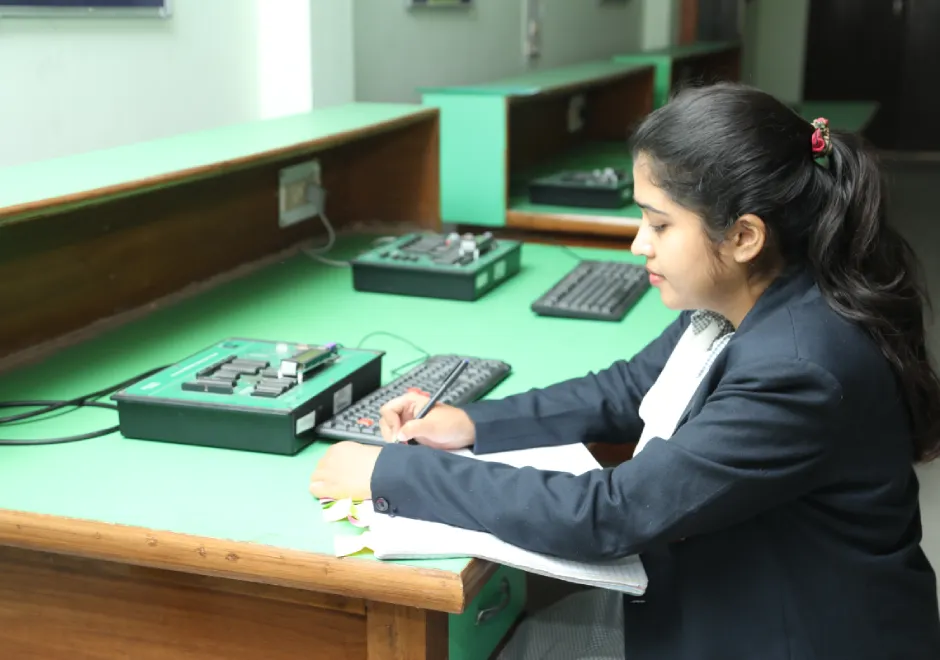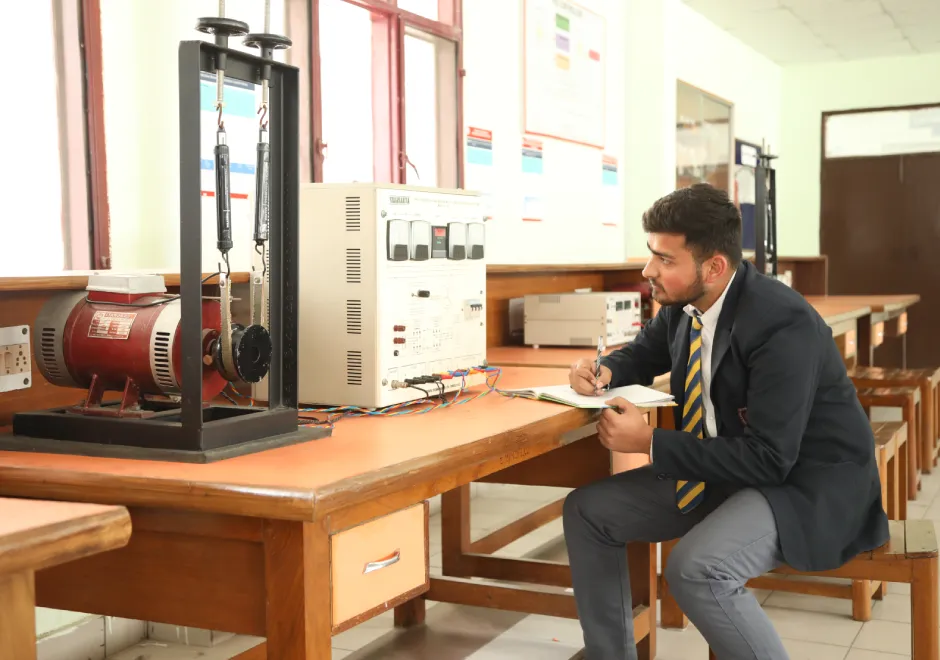
Master of Technology in Power System
Department of Electrical And Electronics Engineering
Duration
2 Years
Eligibility Criteria
Passed Bachelor’s Degree or equivalent in the relevant field. Obtained at least 50% marks (45% marks in case of candidates belonging to reserved category) in the qualifying examination.

The Department of Electrical and Electronics Engineering is a center of innovation for electrical systems and electronics, offering a dynamic learning environment that cultivates creativity and problem-solving skills.
Our distinguished faculty and advanced labs prepare students to innovate in sustainable technology. M.Tech. in Power System is a two-year postgraduate program in Electrical Engineering focusing on electricity and electronics. It covers power system stability, transmission, distribution, economic load dispatch, renewable energy, and more. COER University offers this program, providing advanced training in power grids and economic, societal, and cultural factors and preparing students for global competency in industry and academia.
Apply NowAdmissions 2026
Find your path to Success
Career Path
Career path you can choose after the course
- Energy Manager
- Power System Engineer
- Electrical Engineer
- Lead Analyst
- Test Engineer
- Manufacturing Engineer

Program Outcomes POs
-
PO1
Engineering Knowledge: Apply the knowledge of mathematics, science, engineering fundamentals, and an engineering specialization to the solution of complex engineering problems.
-
PO2
Problem Analysis: Identify, formulate, review research literature, and analyze complex engineering problems reaching substantiated conclusions using first principles of mathematics, natural sciences, and engineering sciences.
-
PO3
Design/development of solutions: Design solutions for complex engineering problems and design system components or processes that meet the specified needs with appropriate consideration for the public health and safety, and the cultural, societal, and environmental considerations.
-
PO4
Conduct investigations of complex problems: Use research-based knowledge and research methods including design of experiments, analysis and interpretation of data, and synthesis of the information to provide valid conclusions.
-
PO5
Modern tool usage: Create, select, and apply appropriate techniques, resources, and modern engineering and IT tools including prediction and modelling to complex engineering activities with an understanding of the limitations.
-
PO6
The engineer and society: Apply reasoning informed by the contextual knowledge to assess societal, health, safety, legal and cultural issues and the consequent responsibilities relevant to the professional engineering practice.
-
PO7
Ethics: Apply ethical principles and commit to professional ethics and responsibilities and norms of the engineering practice.
-
PO8
Individual and team work: Function effectively as an individual, and as a member or leader in diverse teams, and in multidisciplinary settings.
-
PO9
Project management and finance: Demonstrate knowledge and understanding of the engineering and management principles and apply these to one’s own work, as a member and leader in a team, to manage projects and in multidisciplinary environments.
-
PO10
Life-long learning: Recognize the need for, and have the preparation and ability to engage in independent and life-long learning in the broadest context of technological change.
Program Educational Objectives PEOS
-
PEO1
To build the soundest professional career and/or be capable enough to further acquire higher education by attaining sufficient knowledge, understanding, and practical skills in the domain.
-
PEO2
To comprise exemplary attitude, communication skills, teamwork, and administration in their occupation and adjust to lifelong learning.
-
PEO3
To includes vast academic and experimental knowledge of fundamentals to enable them to use it to expand the enterprise and community in general.









